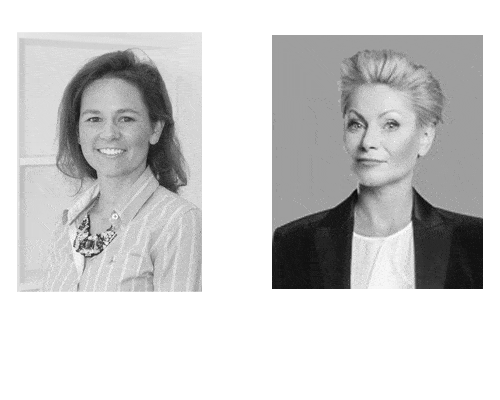‘It starts the first day you are sent to the magistrates’ court as a second six pupil,’ explained Red Lion’s Edmund Vickers QC. ‘Someone has been arrested overnight on a rape charge and you are there to fill out the legal aid forms and apply for bail. You have someone’s liberty in your hands and you are up against a cynical magistrate looking for reasons not to grant bail. Neither Bar school, nor pupillage, can prepare you for that pressure which increases throughout your career.’
Burning the midnight oil with last-minute preparation of cases, often due to late service of papers; juggling multiple instructions at once; the emotional strain of dealing with vulnerable clients; the stress of ‘performing’ before the judiciary, juries, and opponents; coping with bullying judges and demanding solicitors; the harrowing nature of certain evidence; the 24/7 nature of modern legal practice; the anxiety of being self-employed; and, of course, the financial pressures of publicly funded work particularly at the junior Bar as well as the government’s court closures, all impact the wellbeing of barristers.
Research conducted into wellbeing at the Bar has found that one in six barristers feel in low spirits most of the time; one in three find it difficult to control or stop worrying; 59% of barristers demonstrate unhealthy levels of perfectionism; and two in three barristers feel that showing signs of stress equals weakness. With so few advocates comfortable with sharing the stresses and strains of their practice, The Legal 500 and Red Lion Chambers held a roundtable discussion in September with the aim of getting barristers of all stripes talking about the Bar’s wellbeing crisis.
There are the emotional stresses and strains of the subject matter and also dealing with the client. We all know what financial pressures are like, but it is another stress to add into that cauldron,’ said Vickers QC. ‘I try to compartmentalise as much as possible but when you have all those stresses, resentment can build up. Some people rely on booze, many let it affect their personal relationships. We have got to find ways of releasing those stresses.’
‘Warned lists in particular are a wellbeing scourge,’ added Doughty Street’s Pippa Woodrow, ‘it is a system set up to require an all-nighter. And there are obviously the cases where the subject matter is harrowing.’ This is another unfortunate consequence of swingeing cuts to legal aid, with barristers often now reviewing unused material their instructing solicitors are unable to. ‘I found my first historic child rape really difficult, as was my first terrorism case,’ explained Woodrow. ‘I was with my mother-in-law in a cottage in Wales clicking on this unlabelled material, which is not flagged as being sensitive. I open it and there is an executed child. I have never been able to get rid of that image.’
The impact of viewing harrowing imagery, from violent crime to sexual abuse, can damage the most private areas of a lawyer’s personal life. One unnamed criminal practitioner noted the negative effect on intimate personal relationships ‘because your head is filled with images that you really do not want to retain but you have no facility whatsoever to dispense with them’.
Prior to taking silk in 2017, Vickers QC was frequently instructed to defend and prosecute allegations of child abuse, the stress of which, he admits, wears on even the most seasoned advocate. ‘I am a pretty relaxed person, but the nature of the work used to get me down. I was doing a child abuse case at a time when I had young children and I remember getting home for bath time a rare and joyful experience –and thinking what a child abuser might like to do to my children. That corrupts an otherwise innocent and beautiful experience for a parent. I will never get over that awful feeling of bringing work home. From then on, I have tried to separate work from my home life.’
Sarah Vine, also at Doughty Street, agrees that advocates should try to compartmentalise where possible, but recognises that this is far from easy. ‘It is absolutely fine to talk about putting stuff in a box, but the practical reality is that it is incredibly difficult, not least because of the fiscal drivers in the overstretched criminal justice system. People are paid less and less to do more and more,’ she said. ‘Because you’re paid less, you don’t have time to decompress between cases. The odds get shorter on you developing secondary trauma, simply because of the frequency you are hearing yet another account of something horrific, or dealing with yet another client who represents a systemic, comprehensive failure of the system. Your resources are drained so fast now.’
Judicial pressures Vine also notes the stress and demands placed on the judiciary by an overstretched justice system. ‘Judges are having their own wellbeing crisis and because so much of that is untreated, that is being outsourced to the Bar,’ she said. ‘The Bar outsource it to their colleagues or to their families. It is incredibly difficult to find yourself a space outside of that and to then have to go back into a system where you often feel as though you are completely alone.’
Woodrow also highlighted how the pressure placed on criminal court judges can percolate into judicial bullying: ‘There are quite a lot of differences in the way judges will sometimes be prepared to vent at junior counsel, as opposed to when you are standing next to a very experienced male of twice your call. When you are constantly at the edge of your competency as you very often are in this job it is hard to maintain your self-esteem, sense of self-worth, and then feel you are able to do a really good job for your client in circumstances where the stakes are always high.’
1GC | Family Law’s Laura Briggs believes any change must come from leaders: ‘We are seeing improvements, but when you are in court, your timetable is dictated by the individual judge hearing the case which is where a lot of the boundaries and red lines need to start coming from. We are seeing it more, but you still get judges refusing to accommodate important personal arrangements when going part heard and sitting late.’
Relaying one anecdote, Coram Chambers’ Jacqueline Marks said: ‘A member of my chambers did a 15-day case in the family court. The judge made them sit to 5:30pm at the earliest and 6:55pm at the latest in all but two days. When they left court, they had to continue to take instructions on the evidence on the street. This was during the summer when it was extremely hot and the courtroom had no air conditioning. Clients were falling asleep. On one occasion, my colleague made an application to adjourn at 5:30pm. She was told they had to crack on and sat until 6:30pm. The impact on everybody was significant.’
Never off duty Although more financially rewarding, the wellbeing pressures are no less challenging at the commercial Bar, as one junior explained: ‘The one thing you need to watch out for is long-term overwork and burnout. It is not uncommon to work ten- or 15-hour days for most of the year. What causes that overwork? Well, we take on too much and that work is mushrooming. I’m frequently on two-week trials with 200 bundles and as the junior barrister you are expected to have read every page. Then there is the email thing; you get them all the time and they are often substantive.’
The Mindful Business Charter, an initiative designed by Barclays, Pinsent Masons, and Addleshaw Goddard, aims to remove unnecessary sources of workplace stress and promote better mental health and wellbeing in the legal community by reinforcing smart meetings and emails and respecting rest periods for lawyers.
However, the initiative has yet to be taken up by all organisations and, due to the chambers structure and the self-employed status of barristers, it is difficult for the Bar to follow in the footsteps of some City firms. ‘When you are a sole practitioner, you are You plc, you want to be open all hours, you want to be responsive,’ explained Nicholas Hill, senior clerk at Three New Square.
‘I recently lost a three-week case because I did not reply to something while I was on holiday,’ said Woodrow. ‘And when you take time off you are still on the clock. There are still people emailing you, there are still things that have to get done. I recently took myself off for four days to a campsite with no signal or email and still managed to do 24 hours of work. I have never had a holiday where I have not been able to work. I find it incredibly difficult to carve out proper time away and that is not because I have not tried or because I am a sucker; it is the nature of the job.’
‘We are all our own worst enemies because we do reply to emails at midnight and two o’clock in the morning when we are finishing the work on the other case,’ agreed Bridget Dolan QC of Serjeants’ Inn Chambers. ‘For the past year, I have tried to say no and it is starting to work. I have taken silk so I can be a bit braver about saying no, but solicitors are in as daft a position as we are.’
In August, the outgoing chair of the Criminal Bar Association (CBA), Chris Henley QC, criticised the judiciary for ignoring criminal barristers’ wellbeing. ‘It’s disappointing that the very modest requests for sensible email and sitting hours protocols, made both by the Bar Council and CBA, have so far been ignored,’ his final message to association members read. ‘I have reluctantly concluded that we will have to wait for fresh blood at the top before we get the leadership on wellbeing issues we need and deserve.’
Vine suggests specialist Bar associations and representative bodies are well-placed to identify what constitutes a genuinely urgent email requiring a barrister’s attention. ‘Because everything now is treated as an urgent matter. “Can you return this certificate of trial readiness, please, urgently?”Dear instructing solicitor, (a) that is your job, it is litigation, and (b) it is not urgent”.
A Catch-22 Remote working is often trumpeted as a panacea for many of the stresses of modern professional life. As some chambers have grown exponentially, remote working and hot-desking have become a necessity. However, as several barristers noted, being constantly out of chambers, or not having a place that feels like ‘home’, can have unintended consequences, specifically when it comes to younger advocates developing support structures and sets maintaining a culture of collegiality.
‘Nearly all the junior end work remotely, which I think is concerning because you have got no idea of what they are doing, in terms of the work,’ offered Annette Cafferkey of 4-5 Gray’s Inn Square. ‘It is good to talk about your work, especially when you are in a specialist area of law. You pick up so much by osmosis. I am interested to see how that plays out in the years to come because working remotely is a fairly recent phenomenon, and I do have my concerns about it.’
Jacqueline Marks at Coram Chambers agreed: ‘In the family law field, you often absorb clients’ bitterness or their desire to control their partner, or you have to protect vulnerable clients. Where do you take those feelings? At the early stages of my career, I would go back to chambers and I was able to sit with my roommate and we would chat. Now you go home and you are short-tempered with your family. There is nowhere to take the emotions you are absorbing, and it is thinking about what is yours and what is your client’s and you cannot always distinguish between the two.’
‘Engagement fatigue is a real thing,’ offered 1GC | Family Law’s Lucy Maxwell. ‘From the second you are up at the crack of dawn, you are absorbing all these ill feelings all day long. Not just from your client, but from the judge and the barrister on the other side. By the end of the day, you just have that completely drained feeling.’
Maxwell explained that the open-door culture of her chambers has helped her enormously despite the pressures all its members face. ‘We are all equally under pressure. Everybody has their own case to worry about; they have their own families to rush home to, so there is that slight reluctance to overburden them with your bad day. But I have never had anybody say they do not have time to speak; I have never felt I was having the door closed in my face.’
‘Support from chambers colleagues is often most important because, unlike your family unless you are (un)fortunate enough to be married to another barrister they know what is going on and they get it and will give you their ear because they are going to need your ear next week,’ added Dolan QC.
‘It is something I have really struggled with,’ admitted Woodrow. ‘I had two years before CaseLines came in and I probably learnt more in those two years than I have done since because I was in chambers and I would ask, “What do you think about this? and it is all a positive affirmation. Even if you do not need that help, saying to somebody, “I think this, and them going, “Yes, I think you are right,or, “What about this? builds your confidence, which builds your resilience to deal with all the other stresses we are talking about.
‘Now, you have to proactively reach out in order to get help, which you only do when you feel things are going wrong,’ she continued. ‘You have to be willing to be vulnerable with somebody and say, “I do not feel like I am doing well at this, and then ask for help and it is sort of a negative experience. The loss of that hive mind you can draw on is part of this, and I do not know how you get it back because there is so much that is good about remote working and we are not going to go back to always being in chambers, but we need to try to recreate those opportunities for accidental contact.’
Rachel Holmes, CEO of Matrix Chambers, believes chambers need multiple touchpoints to make collegiality work. ‘It is a great idea having that Friday drinks in the diary, which so many of us do in chambers, but it also needs to be a Thursday lunch and a monthly something else. This is where having as much participation from staff and barristers as possible in various committees or subgroups across chambers really works because you mix with people in a different setting. You form different friendships and have different outlets for just chewing on the day. I will add that this costs money and I am always mindful that what we are spending is effectively cash from barristers’ pockets. However, it is money well spent if it is put to use in the right way.’
Hill, a founding member of the Wellbeing at the Bar Working Group, agrees that if social interaction is key for wellbeing, then chambers must invest in it. ‘One of the problems has been the volume of work people are undertaking so taking time out is not easy. I suspect one of the other problems is the size of chambers nowadays; they are so big you have lost that slightly more collegiate atmosphere in which everybody knows what is going on all the time and you, therefore, have that social interaction already. It has been a fear of mine that “big is beautiful can be detrimental in other ways.’
Generational and gender divide A recent study of 2,000 UK men by CV-Library revealed that six in ten would quit their job because of its adverse effect on their mental health. In 2018, there were 6,507 suicides registered in the UK, with men accounting for three-quarters of these deaths. Upon becoming wellbeing director of the CBA it was immediately apparent to Vine that the single most vulnerable demographic at the Bar was white, middle-aged, privately educated men.
‘You have to be able to talk to people in terms they can hear. I had to put real thought into how to communicate the imperative of wellbeing to them in a way that was palatable. For me, it was using the metaphors of elite athletics, the military, and anything square-jawed I could think of. The City, sport, and military are all over wellbeing, not least because the business case is so self-evident. To say that wellbeing or mental health problems are a consequence of doing difficult work, seems a good way to communicate to that demographic.
‘It is like being an elite athlete,’ she continued. ‘The harder the races you run, the more likely you are to injure yourself, so it is actually almost a medal and you have to treat it with the same kind of care and gravity an elite athlete’s coach would treat it, because then it is not about weakness, it is battle fatigue. There is a kind of nobility to that injury.’
Briggs noted that the impact on women faced with wellbeing issues could have a long-term impact on the demographics of the Bar: ‘The higher echelons of our profession remain predominantly male. If you have a more junior woman working to the demands of a male leader, which may not be compatible with caring responsibilities, that can be a real problem for retention of women at the Bar. Until you have more people in leadership roles who are supportive, you are going to find the stress and pressure trickling down hurting the people who need support.’
Generational divides also have an impact on the wellbeing discussion. Although millennial barristers may be more open-minded, more open to discussing sensitive personal issues, and more likely to take a day for themselves than older generations, the pressure from those above, who as one junior put it ‘had to be hard as nails to survive at the Bar’, is intense. ‘They think you, as a junior female barrister, should also be as hard and going through the same sorts of trials and tribulations they did. There is a real difference in expectation, in terms of the kind of environment we are in now, versus when they were at my call.’
‘We cannot ask juniors to do the heavy lifting in terms of the cultural shift,’ concluded Vine. ‘The junior Bar, in all practice areas, is ready to respond to change but change has to be implemented and led not just from the top but in concert with solicitors, clerks, and the bench. It will be a painfully slow job, but when one person is seen to make a successful change, another will be encouraged, and then five more.’
For tips on how to cope with poor wellbeing, visit the Wellbeing at the Bar website.
Practical guidance
‘You need to have the most senior person in an organisation talk about mental health. Practice development meetings should include the question of wellbeing. We say it overtly. You do not need to go there if somebody does not want to have that conversation, but it is there, and it is on every single practice development meeting. And, consider an Employee Assistance Programme where trained counsellors are at the end of the phone waiting to listen if you’ve had a really rough day.’
Rachel Holmes, CEO of Matrix Chambers
‘As a profession, we are not good at volunteering praise. If we were to praise each other and take those small opportunities to give validation more, then you would be more prepared to be vulnerable because you know that asking a “stupid question” does not define you. Consider mentoring someone outside of chambers. Mentorship from people you are in no way dependent on is really important.’
Pippa Woodrow, Doughty Street Chambers
‘When it comes to emails, read David Allen’s Getting Things Done. It has a really good 4D process, which is: do it, delegate it, defer it, and drop it. It is making those decisions when those emails come in: what do I need to do? What could go somewhere else? Try to use Lex and other software as an aid. They are there to help you.’
David Wright, director of business development at 4-5 Gray’s Inn Square
‘Start tethering the management of demands on time with quality of performance. The hack I have got with judges is to say, “This is a serious case, a difficult and complex task, and I cannot do justice to my client’s case”. It is not magic but it works well with most judges because they hear the formula and know they are going to be recognised as behaving utterly unreasonably in the face of somebody saying, “I need more time to do justice to my client’s case”.’
Sarah Vine, Doughty Street Chambers
‘Consider Emmanuel v South Gloucestershire Primary Care Trust 2009 EWHC 3260 (Admin) for judicial comment on how courts’ unreasonably long sitting hours can impact on the fatigue of counsel and the tribunal, such that proceedings become unfair.’
Bridget Dolan QC, Serjeants’ Inn Chambers
‘The Bar Council is launching an anti-bullying and harassment app that will be available for barristers this autumn. It will allow people to report things anonymously. The Bar Council wants your feedback, so it has something concrete to take to meetings with judges and the court service. Also, talk to your clerks and be honest with them about what is going on.’
Nicholas Hill, senior clerk at Three New Square











